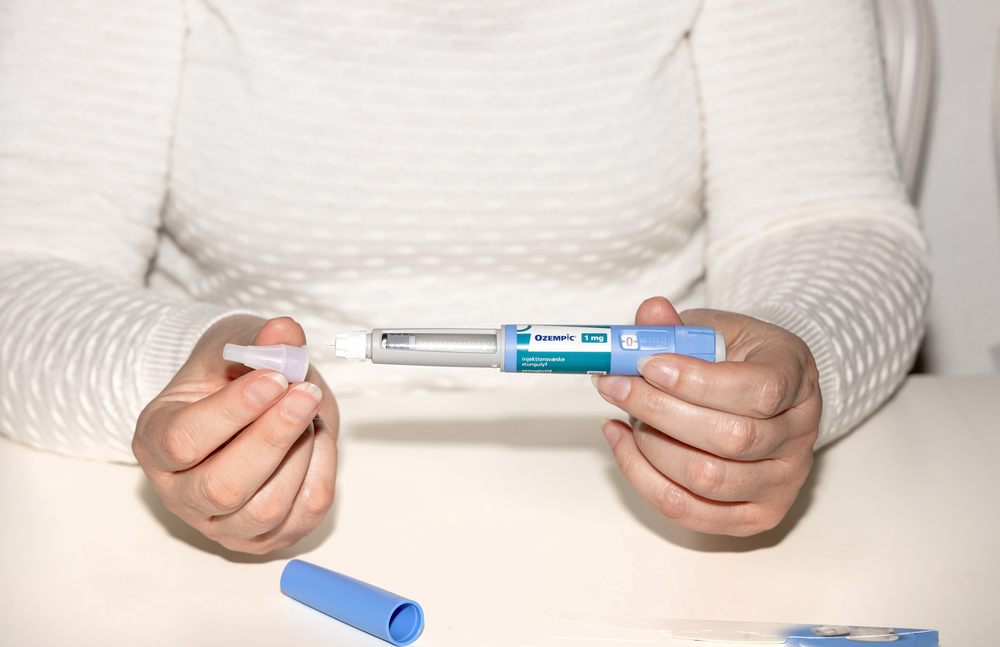Weight Loss Injections

How Semaglutide Works
Semaglutide (branded as Ozempic or Wegovy) is a glucagon-like peptide-1 receptor agonist. This type of medication can help manage blood sugar levels for patients with Type 2 diabetes, and can also help treat obesity.
Semaglutide mimics a naturally occurring hormone to decrease appetite by sending fullness signals to the brain. It also helps slow digestion, which discourages the recipient from eating as frequently. It also encourages the body to break down fat and use it more efficiently.
Studies have shown that non-diabetics taking semaglutide can lose up to 15% of their body weight with long-term use. Supporting these results with diet and exercise is important to prevent regaining the weight, especially if the patient stops taking semaglutide.
Semaglutide is right for many patients interested in weight loss, but you will need to schedule a consultation to speak with Dr. Alkadri and learn whether it’s right for you. He will establish a treatment regimen consistent with your body, diet and lifestyle.
How to Prepare for Your First Appointment
The first appointment will involve you discussing your health, habits, and weight loss goals with Dr. Alkadri. It’s important that you take some time before your appointment to consider your health history, experience with weight gain/loss, and other related concerns. Here are some questions you should reflect on before your consultation:
-
What has your experience with weight management been like? Example: Have you been in a cycle of losing weight and gaining it back? Have you had recent weight gain you’d like to address?
-
What sort of treatment process are you interested in?
-
Why is weight loss treatment important to you?
-
Does your insurance cover weight loss medication?
-
Do you have a history of endocrine tumors, eye disease, pancreatitis, kidney disease, stomach problems, thyroid cancer, or are you pregnant or trying to get pregnant?
-
What other medications are you currently taking?
Dr. Alkadri will answer all your questions at your private consultation and help you establish the best path forward. Semaglutide is intended to be a long-term medication, so there will be health history, medications, and other factors to consider before adding it to your life.
What to Expect with Semaglutide Injections

-
After your initial consultation, Dr. Alkadri will prescribe your injections and you will pick them up at your pharmacy. He will provide initial instructions for your injections and regimen, and your pharmacist will also provide any information you need to make the injections stress-free.
-
You will be dispensed a number of injections per pharmacy visit. The strength of your injection may change as you move through the first few months of treatment, so be sure to follow your prescribed schedule.
-
You will inject yourself on your thigh, stomach, or upper arm once per week. Each injection will come with an instruction pamphlet that you should follow closely.
-
Dispose of your used needles in a sharps container – you can acquire one from your pharmacy.
-
If you miss a dose, you should take it as soon as you can within 5 days of the intended dose date, and take your next dose at the regular interval. If you’re uncertain about how to handle a missed dose, contact your pharmacist.
-
The most common side effects are gastrointestinal and stomach issues like diarrhea, gassiness, constipation, nausea, and vomiting. These should improve as treatment continues.
-
If you ever have questions, reach out to your pharmacist or Dr. Alkadri.